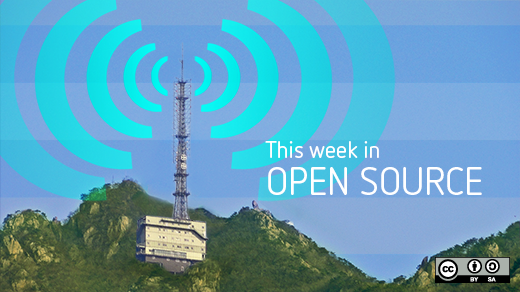Open source news for your reading pleasure.
August 9 - 15, 2014
In this week's edition of our open source news roundup, we take a look at OpenStreetMap's 10th birthday, open source medical devices, and more!
For the love of open mapping data
On Saturday, OpenStreetMap celebrated its 10th Birthday! TechCrunch took this opportunity to interview the founder of OpenStreetMap, Steve Coast. Read about how the project started, its infrastructure and financing, and how it evolved with the ubiquity of mobile devices. OpenStreetMap also celebrated their birthday with events in a number of countries.
This article at Gizmodo features a tool made by developer Martijn van Exel called OSM Then and Now, which shows how OpenStreetMap has mapped the world since 2007. There's also a great visualization of every edit on OpenStreetMap for the last ten years.
Challenges ahead for open source medical devices
At Linux.com, author Libby Clark talks with former Marine Jonathan Kuniholm, the founder of the Open Prosthetics Project Kuniholm. The interview starts off with the keynote at LinuxCon and CloudOpen North Amercia in Chigago, where Kuniholm covers how the healthcare industry is working with Linux and open source communities to improve medical devices.
Kuniholm discusses how open source and collaborative methods are applied in prosthetics, specifically "a functioning open hardware/software project, the Myopen, which is used by two neural research labs." He also touches on some of the other challenges that the project faces. One issue, according to Kuniholm, is the "confusing state of licensing and IP protection for open source hardware." There are some good lessons to learn from this interview, about starting up a project in open hardware and health. Make sure to read all the way to the end of the interview for a preview on Kuniholm's keynote.
Cities are jumping on the open source bandwagon
At Motherboard, author Alyssa Hertig covers the story of Raleigh, NC, one of the cities jumping on the open source band wagon. She touches on how open source governance and open source as a philosophy can be applied to a city. "The basic principle behind open source translates to politics in the form of transparent governments, open, readily available data, and encouraging citizens to engage in the political process."
The article further covers the city-wide initiative Open Raleigh and some examples of what Open Raleigh and the city accomplished. Some of these examples are SeeClickFix, a reporting app for civil infrastructure. "Raleigh is hoping to shape a working model that other towns and cities could easily adopt." Mentioned in the article, is our own project lead for Opensource.com, Jason Hibbets, and his book The foundation for an open source city.
Machine learning goes open source
At ReadWrite this week, Matt Asay interviews Simon Chan, the founder of PredictionIO. They talk about machine learning and open source. The Apache Software Foundation made a start with Apache Mahout, and PredictionIO wants to take open source machine learning even further.
So what is machine learning? According to the PredictionIO site, it allows "software developers to create predictive features, such as personalization, recommendation and content discovery." As Chan also says in the interview, "PredictionIO, as MySQL did to the database industry, can be the machine learning server behind every application. It is 100% open source, developer-friendly and production-ready." PredictionIO is showcased by GitHub as one of the most popular open source machine learning projects in the world.
China will change the way software is bought and sold
Also on ReadWrite, Matt Asay writes about China and how it will change software transactions. It's all about open source. According to Asay, China is clearly ramping up the open sourcing of its software development. "Companies like Huawei view open source as a strategic priority," he writes. Chinese web companies embrace open source, and their software stacks are open source, top to bottom. Just like in the United States and Western Europe.
In other news
- White House "digital SWAT team" announced
- U.S. digital services playbook defaults to open
- How to overcome hidden barriers to open source adoption
- Out in the open: Panamax is Docker’s best friend
- CoreOS acquires Quay.io to launch its private Docker repository
- ClusterHQ launches Flocker to facilitate robust stateful Docker containers
A big thanks, as always, to staff members Jen Wike and Michael Harrison, and moderator Scott Nesbitt for their help this week.






2 Comments